The National Science Foundation (NSF) UC California Alliance for Maximizing Potential (aka NSF CAMP) Alliance - Advancing Inclusive Excellence in STEM
UC Berkeley’s NSF CAMP Program (also known as a NSF LSAMP program), it is part of a UC systemwide alliance. Our statewide office transitioned from UC Riverside to UC Irvine under the direction Dr. Pheather R. Harris who leads our current grant, which started in December of 2024 and goes for five years. Our UC Berkeley Faculty Director is Professor Scott Moura.
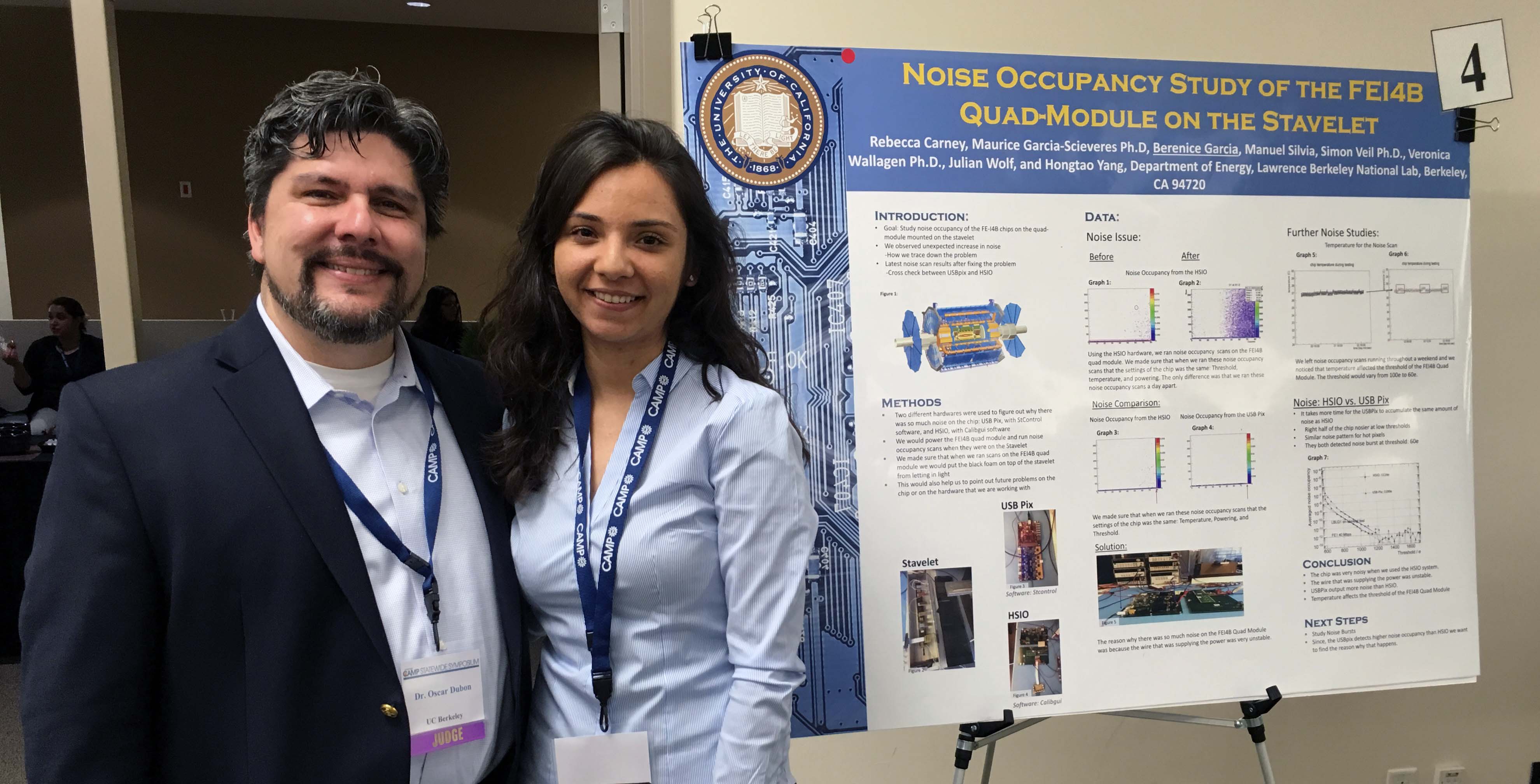
"NSF CAMP is dedicated to UC undergraduate achievement in STEM. Faculty-mentored research experience is the cornerstone, providing the preparation and impetus for graduate studies. UC faculty assert that creative research is one of the best ways to prepare students for persistence toward the B.S. degree and success in graduate school." ~ NSF CAMP Statewide Office
Students gain many advantages through the academic and professional development opportunities that increase retention and degree completion. These may include workshops, linkedin coaching, career pathway advising, and professional development grants to help support graduate school applications, etc. Typically in February, students from nine UCs travel to the host campus for a one day research symposium. Various STEM faculty mentors judge research presentations in areas of STEM.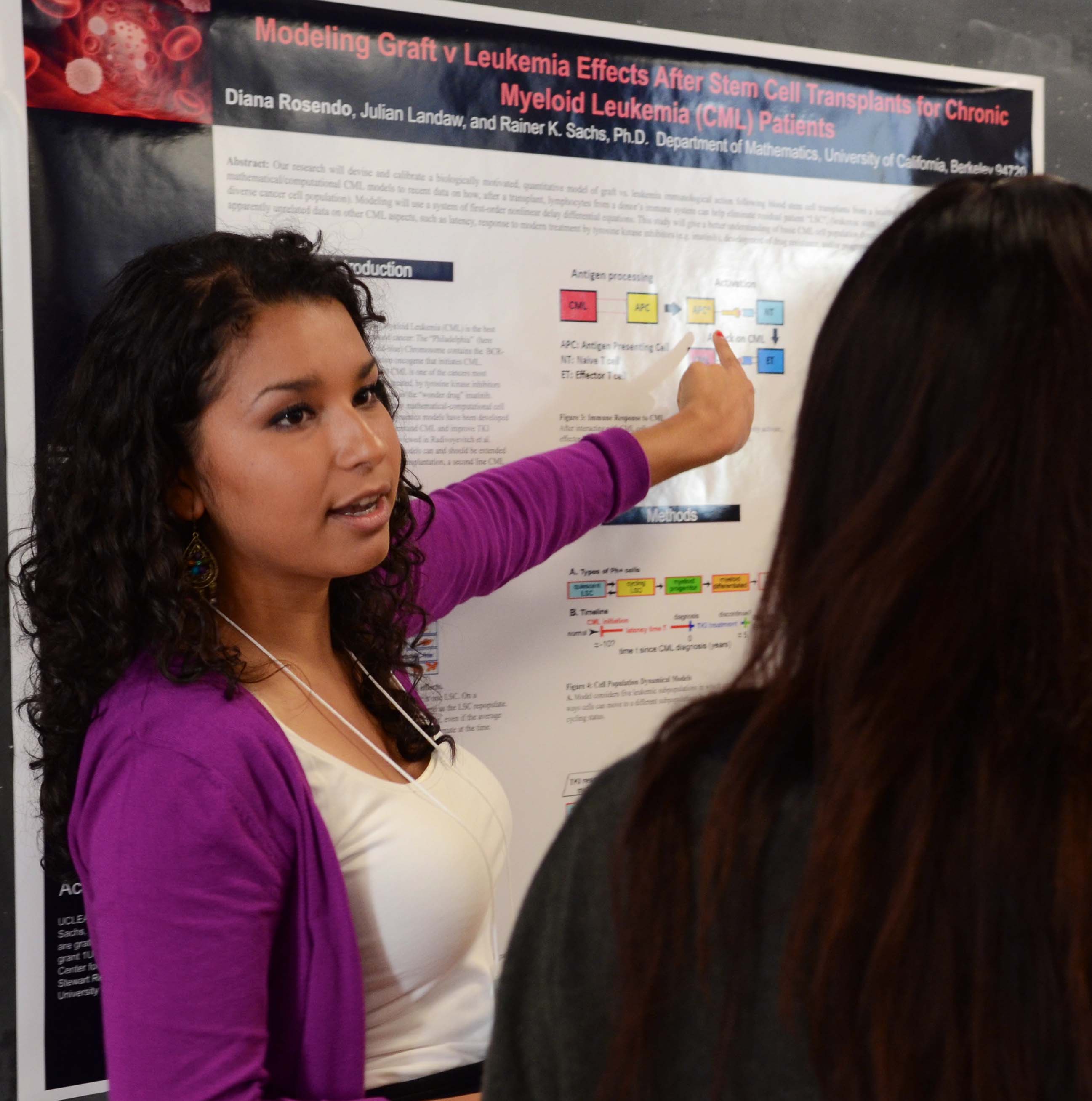
If you have any questions please text Diana Lizarraga at # (510) 778-5165.
2025 Fall Cohort
- Aryssa Muhammad, Engineering Math and Statistics
- Carlos Plasencia, Mechanical Engineer
- Daisy Corril-Castani, Physics
- Daniel Gutierrez, Astrophysics
- Eduardo Garcia Sosa, Mechanical Engineering
- Frances Chuang, Mechanical Engineering
- Kimberly Ramos, Mechanical Engineering
- Madeline Melendez, Mechanical Engineering
- Ruben Servin Leyva, Chemical Biology
- Victoria Bacon, Applied Mathematics
2024 Fall Cohort
- Alicia Naylor Guerrero, Cognitive Science
- Clarissa Jacobo Hernandez, Bioengineering
- Hannah Aguilar, Mathematics & Computational Biology
- Isaac Duarte Valdez, Nuclear Engineering
- Jovanny Ramirez, Industrial Engineering and Operations Research
- Richard Rodriguez, Astrophysics
2023 Cohort
- Angelica Pena, Mechanical Engineering
- Ceshia Palos Castellanos, Public Health
- Daniel Gilbert, Astrophysics
- Dominic Vazquez, Astrophysics
- Jason Hodes, Mechanical Engineering
- Jennifer Reyes, Mathematics
- Jordan Kam, Aerospace Engineering & Mechanical Engineering
- Jenny Mendez Mendez, Applied Mathematics & Computer Science
- Juana Cruz Sampedro, Bioengineering
- Migdalia Sanchez, Mechanical Engineering
- Sahari Munoz, Cognitive Science & Data Science
- Soliana Yohannes, Molecular Cell Biology & Mathematics
- Stephen Salazar, Mechanical Engineering & Material Science Engineering
2022 Cohort
- Alfred Vargas, Chemical Engineering
- Dafne Renteria, Mechanical Engineering
- Edgar Vidal, Physics and Astrophysics
- Carina Romero, Mechanical Engineering
- Gaby Gutierrez, Mechanical Engineering
- Irma Duran, Chemistry
- Mateo Morales, Mathematics
- Martin Beshara, Mechanical Engineering
- Miguel Montalvo, Physics Engineering
- Miguel Jose Baeza, Mechanical Engineering
- Mirelys Carcana Barbosa, Physics Engineering
- Omotara Moremi Oloye, Computer Science
- Preston Hong, Engineering
- Sebastian Quiroz, Mechanical Engineering
- Tristan Villanueva, Mechanical Engineering
- Vyoma Raman, Computer Science & Information/Data Science
2021 Cohort - no cohort due to delay in funding
2019/2020 Cohort
- Ashley Quiterio, Data Science
- Azucena Castro, Applied Math & Data Science
- Carina Hernandez, Bioengineering
- Daniel Santos, Mechanical Engineering
- Diana Sanchez Ruiz, Chemical Engineering
- Elias Saravia, Applied Mathematics & Data Science
- Fatima Rodriguez, Physics & Astrophysics
- Francine Morales, Physics
- Ifechukwu Okeke, Molecular Cell Biology - Neurobiology
- Memo Gonzalez, Computer Science
- Migueljose Baeza, Mechanical Engineering
- Jesus Rios, Nuclear Engineering
- Jorge Soto Pena, Data Science & Ethnic Studies
- Julia Davila, Mathematics & Astrophysics
- Lauryn Jordan, Bioengineering
- Nicholas Brathwaite, Data Science
- Sandra Lucero Ramirez, Physics & Astrophysics
- Sofia Haile, Bioengineering
- Xiomara Gonzalez, Electrical Engineering & Computer Science

Application Information
- Must be a registered full-time UC Berkeley student and in good standing at the time of the application.
- UC Berkeley Second year students through Senior STEM Majors interested in going to STEM Graduate School Programs, though priority consideration may be given to Juniors/Seniors who are applying to graduate school during the upcoming cycle so that they can receive graduate school advising support for their upcoming applications.
- Must have a 2.70 or above overall UC Berkeley GPA (new Fall or Spring transfer students without a UC Berkeley GPA may use their overall community college GPA).
- Program resources are contingent upon NSF federal funding and it should be noted that this program does not have a pre-med program focus.
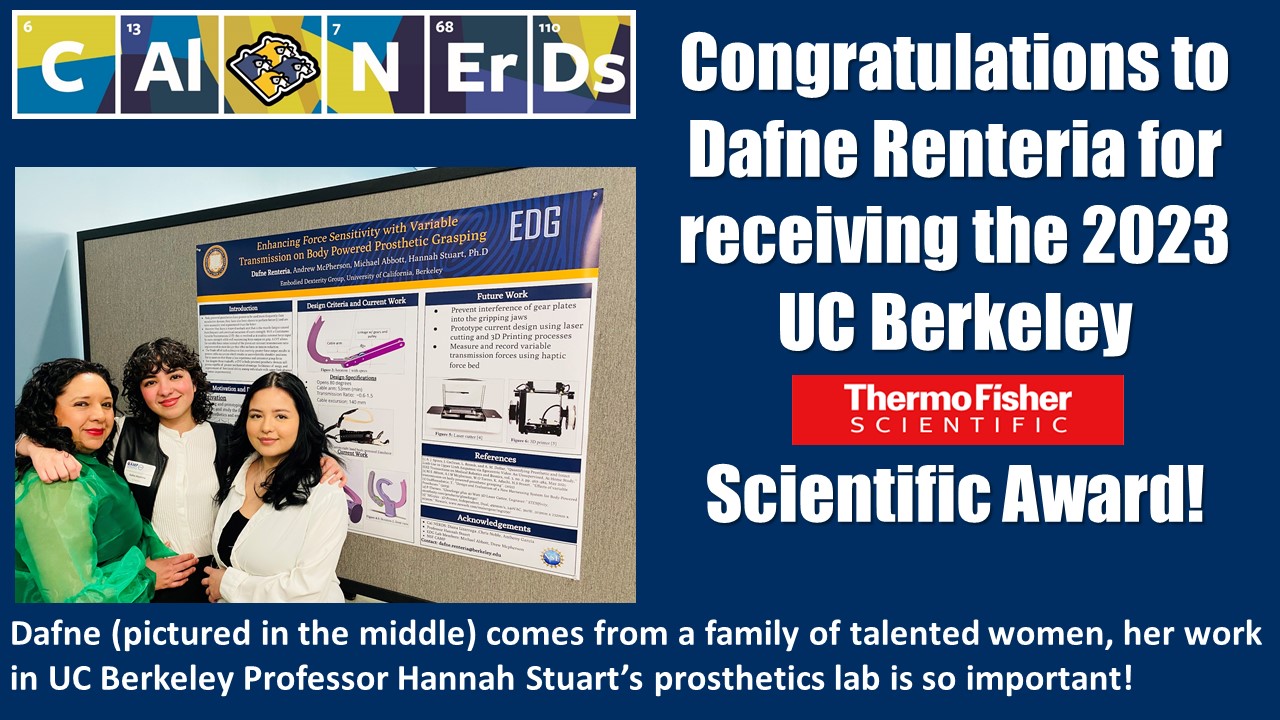
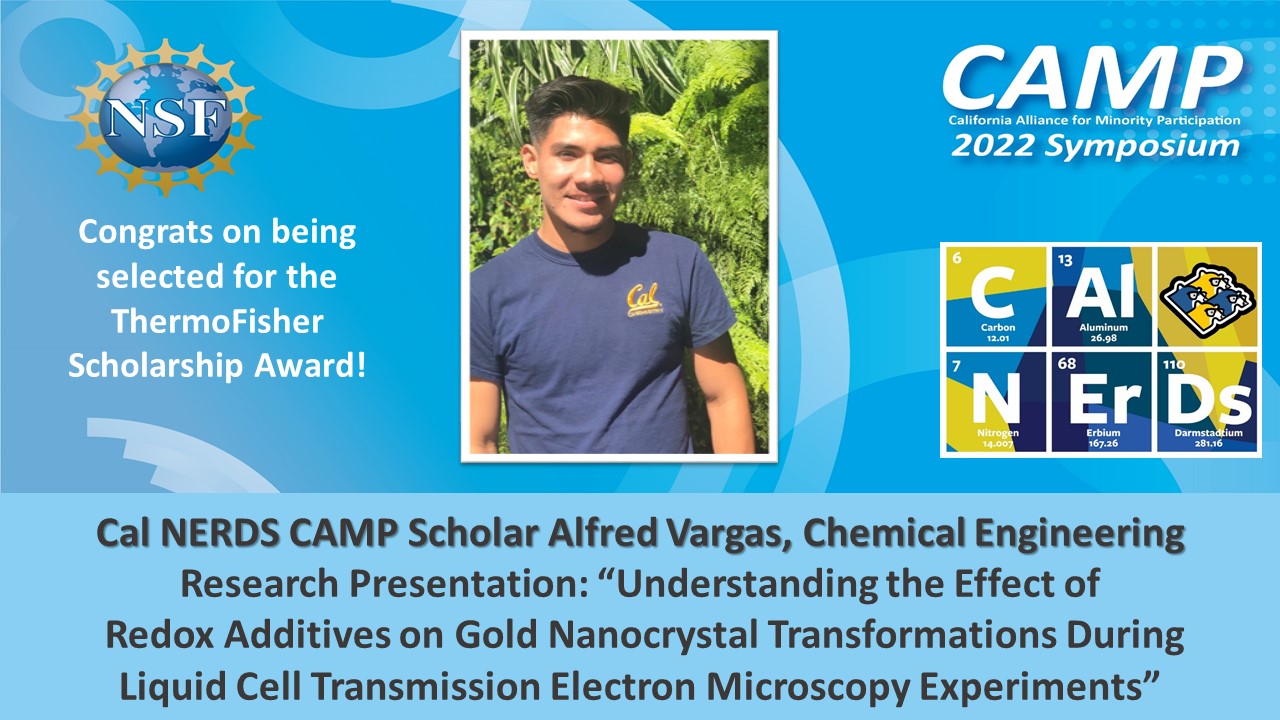
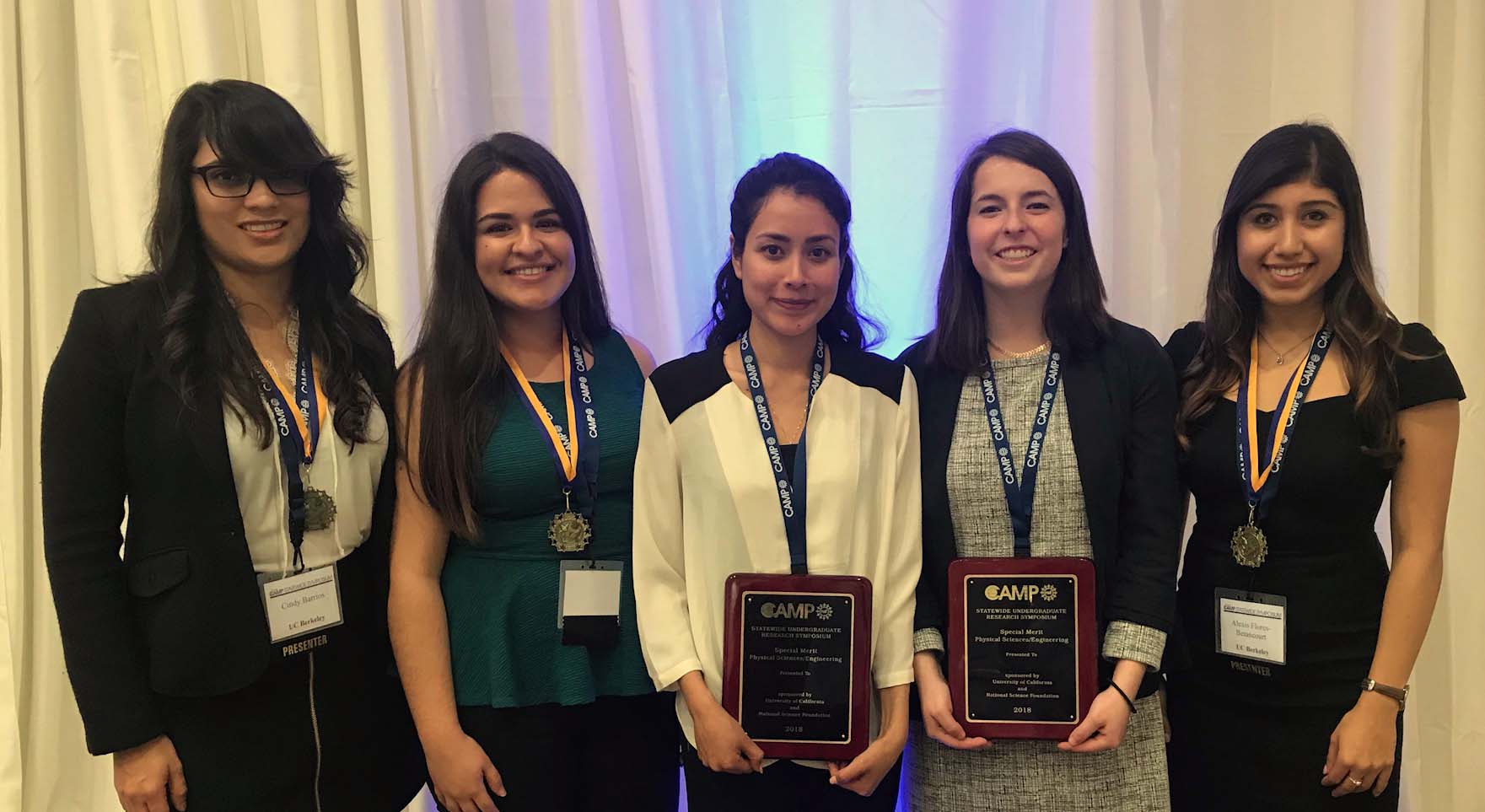
Please send your questions to Executive Director Diana Lizarraga via text at #510.778.5165 or contact Assistant Director Chris Noble, .(JavaScript must be enabled to view this email address)
